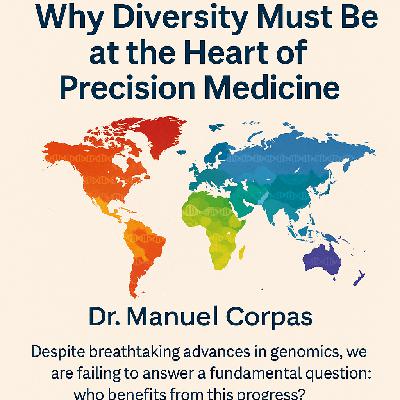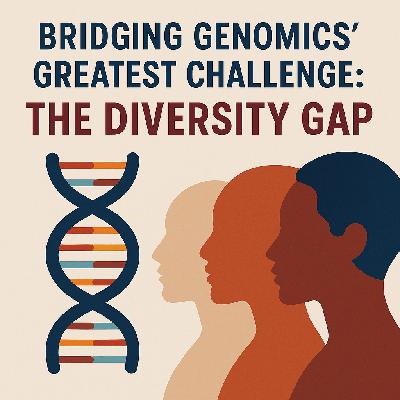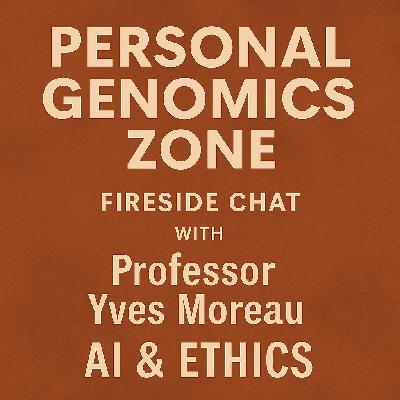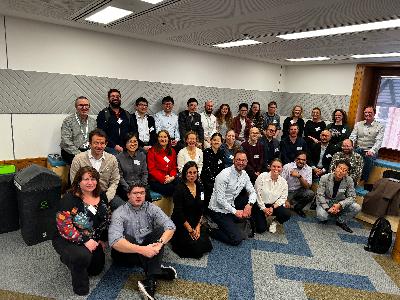Why Diversity Must Be at the Heart of Precision Medicine
Description
by Dr. Manuel Corpas
Despite breathtaking advances in genomics over the past two decades, we are failing to answer a fundamental question: who benefits from this progress?
The sobering truth is that the benefits of precision medicine are overwhelmingly skewed toward people of European ancestry. In 2016, 81% of all genome-wide association studies (GWAS) were conducted in Europeans. Shockingly, by 2021 that number had increased to 86% . Rather than diversifying, the field has become even more homogenous.
<figure class="wp-block-embed is-type-video is-provider-youtube wp-block-embed-youtube wp-embed-aspect-16-9 wp-has-aspect-ratio">
<figure class="wp-block-audio"></figure>
This imbalance is not just academic, it has real consequences for global health. The lack of diversity in genomic datasets means we’re missing key genetic variants that influence disease risk, drug response, and treatment efficacy in underrepresented populations. In pharmacogenomics, for example, African populations suffer disproportionately high rates of adverse drug reactions, in part due to the near absence of population-specific variants in prescribing algorithms .
Take CYP2D6, a gene that affects how the body metabolizes more than 25% of all prescribed drugs. In Ethiopia, the high prevalence of a specific duplication variant means that standard codeine use can be life-threatening, yet this information is largely invisible to current clinical guidelines . Similarly, warfarin dosing algorithms (routinely used for stroke prevention) perform well in Europeans, but fail to account for genetic variation in African and mixed ancestry populations .
Underrepresentation isn’t limited to GWAS or pharmacogenomics. Across clinical trials and biobanks, individuals from Latin America, Africa, Asia, and Indigenous communities remain largely excluded. This lack of inclusion leads to medical practices that work well for some, but leave many behind.
We must do better.
We must ensure that every person, regardless of their ancestry, has an equal chance to benefit from genomic insights. That means investing in globally inclusive research, building equitable reference databases, and rethinking the scientific standards that currently reward sample size over representation.
Health equity in the genomic era isn’t a luxury, it’s a necessity.
Only by confronting the diversity gap head-on can we unlock the full potential of precision medicine for all.
























